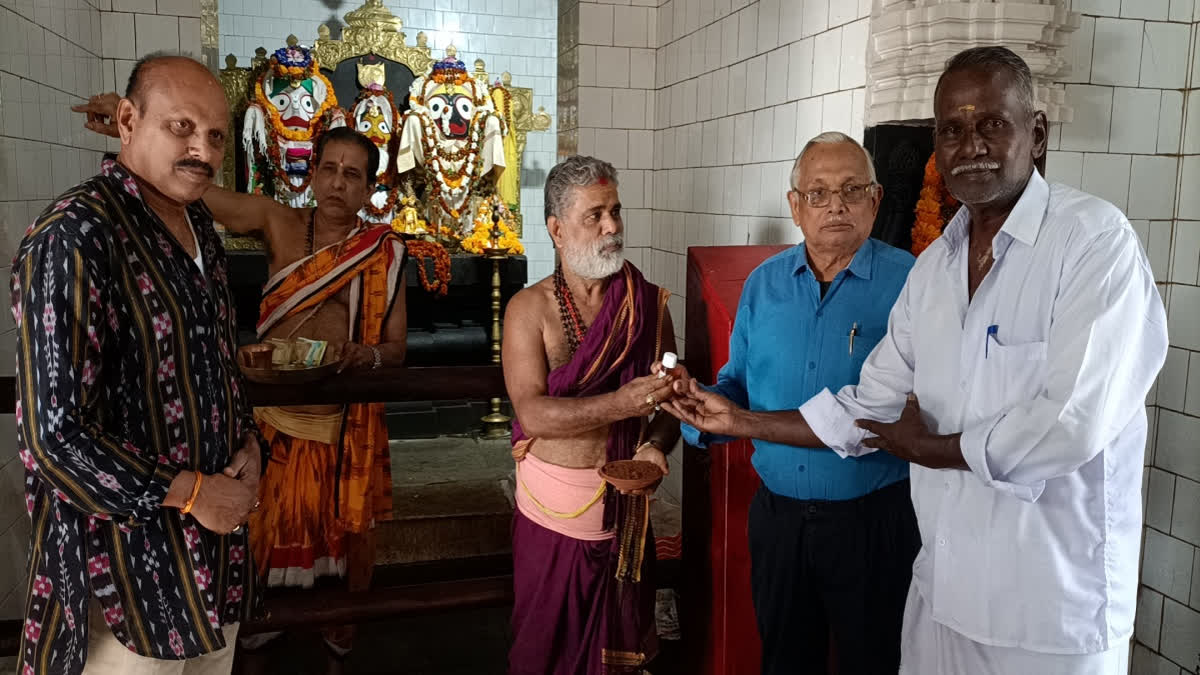Koraput: Ever heard of Dayana? These are aromatic plants, whose leaves are sewn together as a garland and offered to Lord Jagannath in Puri Srimandir. Grown only in the temple garden, the quantity fell short of requirement and the demand was met by a Tamil Nadu farmer and entrepreneur who grew the plants on his fields near Bangalore. However, to put an end to the dependence on another state, Koraput district has geared up to cultivate the plant not only to cater to the Srimandir needs but also fetch good money from its oil, which reportedly has immense medicinal benefits.
According to Madhaba Puja Panda, a temple servitor at Puri, the leaves sourced from the temple’s gardens are insufficient, requiring procurement from other regions, including Bengaluru. "The leaves are an integral part of the rituals here in the Puri temple. We cannot always depend on other states," he says.
This shortfall led to the decision to cultivate Dayana in Koraput, which also marked a turning point for the farmers of the district. Dr. Jagabandhu Samal, secretary of the Sri Jagannath Temple in Koraput, revealed that the seeds for the project were sown with assistance from Mohan Sundaram, the same cultivator from Salem who was supplying the leaves till date. The trust had been exploring options for large-scale cultivation and since the climate and soil were found conducive, Sundaram came down with Dayana seeds which were ceremonially offered before Lord Jagannath at the Koraput temple and then planted in the temple’s Panchabati garden.
In fact, Sundaram demonstrated to the farmers on how to till the land and take up the sowing process. He also shared the success story of the oil he made out of the leaves. "Dayana oil has a lot of medicinal properties. It is in heavy demand from other countries and sells at Rs 50,000 per litre," says Sundaram.
"As a pilot project, Dayana cultivation is set to cover five acres of land initially. If the trial succeeds, the area will be expanded, ensuring a steady supply of leaves for the Jagannath Temple in Puri and other temples across Odisha," Samal says.
Markand Padhi, a senior volunteer at the Jagannath Temple in Koraput, revealed that there are plans to develop a dedicated plantation. Samal expressed optimism that the initiative would serve dual purposes: fulfilling the temple’s requirements for Dayana leaves and contributing surplus production to the Jagannath Temple in Puri.
Sundaram shared that each ton of Dayana leaves yields approximately 800 milliliters of oil, with each liter fetching over Rs 50,000. He added that the oil's exceptional therapeutic properties drive its popularity abroad.
Research on the medicinal benefits of Dayana leaves is on in India. Sundaram hopes that by the time these studies are published, Koraput will have established itself as a prominent hub for high-quality Dayana cultivation and oil production. "If successful, Koraput will not only address the longstanding shortfall of Dayana leaves for the Jagannath Temple but also emerge as a key player in the global Dayana oil market," asserts Samal.
Read More



